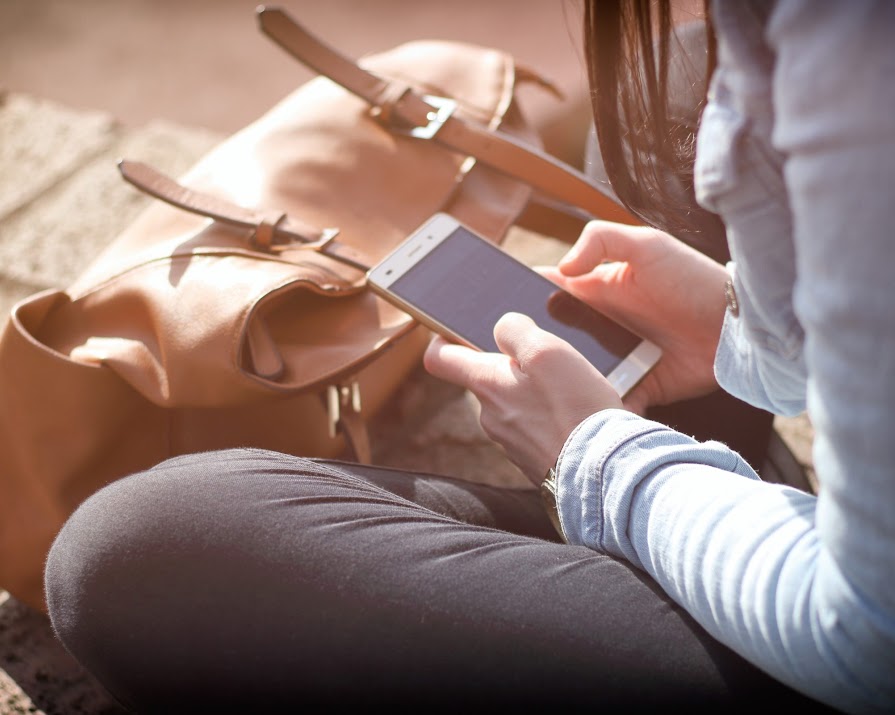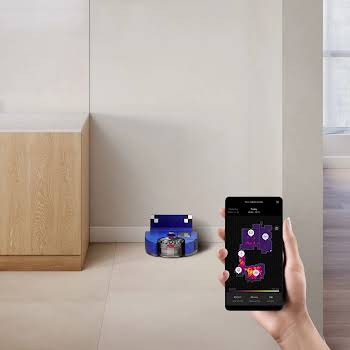By Shayna Sappington
15th Sep 2020
15th Sep 2020
After a series of alarming screen time alerts, insomnia and late night snacking episodes, Shayna Sappington decided to take control and cut back on her toxic phone habit.
Did you know the average Irish smartphone user picks up her phone 50 times a day?
In fact, this phone dependency can lead to a diagnosis of nomophobia – when people have a fear of being detached from mobile phone connectivity. Symptoms can include anxiety, respiratory alterations, agitation, disorientation and even tachycardia.
Smart phones have become a modern day necessity to many, including myself, and it’s easy to see why; they are used for social connection as well as work, navigation, banking, entertainment… making them very easy to overuse.
There have been multiple studies conducted on how this overuse affects our health. BMJ found that people who engaged in excessive screen time experienced a rise in obesity, depressive symptoms and a decreased quality of life.
It’s not just this dependency that affects our health though. Harvard Health found that blue light from screens is best avoided two to three hours before bed because it increases alertness, suppresses melatonin and interrupts our circadian rhythm, making it nearly impossible for someone to sleep straight away. This interruption can also cause pre-diabetic symptoms, and decrease our leptin hormone production (which lets us know when our stomachs are full).
Reader, I felt many of these negative consequences myself, so after a series of alarming screen time alerts, insomnia and late night snacking episodes, I decided to take control and cut back on my toxic phone habit.
Here are the 10 things that worked for me:
- Leave work at work
My fellow work-a-holics, turn off your email notifications and leave work in the office. If you are working 9am-5pm, remind yourself you are not being paid to work overtime.
- Condense your usual routine
Instead of searching for news via my web browser, I created a shortcut and selected my top news sources for my home screen. This way I could get in, read up and get out as quickly as possible.
- Designate the kitchen and bathroom as screen-free zones
This eliminates mindless scrolling while eating. Instead, I enjoyed my dinner and had a chat with my roommate. And not bringing my phone to the toilet, significantly improved my Tik Tok addiction.
- Find an extracurricular activity
This was a trial and error process. I commute an hour every day, so I tried replacing my social media routine with journaling, which I got bored with after a few days. So instead, I started reading books on my bucket list. I also joined an evening yoga class, which has helped me properly unwind after a long day at work.
- No phone in bed
I know this goes against most of our millennial instincts, but this is the best way to avoid harmful blue light. Plus, it helps make your bed a stress-free zone, training your body to use your bed for sleep only – a guaranteed way to improve sleep quality.
- Reward yourself for less screen time
Google and Apple allow you to set limits on your screen time usage, actually forcing you to stop. Or for something less drastic, try the apps Space, Mute or Zen. When your screen time report shows a decrease, treat yourself to some sweets or something small you’ve been wanting.
- Go grey-scale
Apps are designed to catch attention; I put my phone on grey scale mode and was surprised at how affective it was. I was way less tempted to even unlock my phone when it looked so unappealing.
- Disable ‘raise to wake’ and put on your ‘do not disturb’ mode
In addition to turning off my notifications, these two tricks were handy when I was trying to catch some shuteye – no late-night texts or group chat alerts. You can adjust ‘do not disturb’ in your phone’s settings to allow multiple calls to get through too, so you don’t miss an emergency.
Disable ‘raise to wake’:
iPhone: Go to settings-> Display & brightness -> Raise to Wake (switch off)
Android: Go to settings-> Advanced features-> Motions and gestures-> Lift to wake (switch off)
- Delete social media
Okay, to be honest, I deleted Facebook and Twitter but could not bring myself to delete Instagram. But it has cut back my social media usage so much by concentrating on just one platform. Or alternatively, take a short break from social media to give yourself a mental rest.
- Don’t top up
Most places we go have Wi-Fi anyways (public transport, the work place, university, home). Challenge yourself by not topping up for a while. You’ll be surprised at the difference it makes.
Photo: Pexels
Read more: Reduce screen-time with these 10 quirky podcasts for kids
Read more: Reward, entertainer, pacifier: How screens became the default parenting tool
Read more: This book inspired me to break up with my phone






















